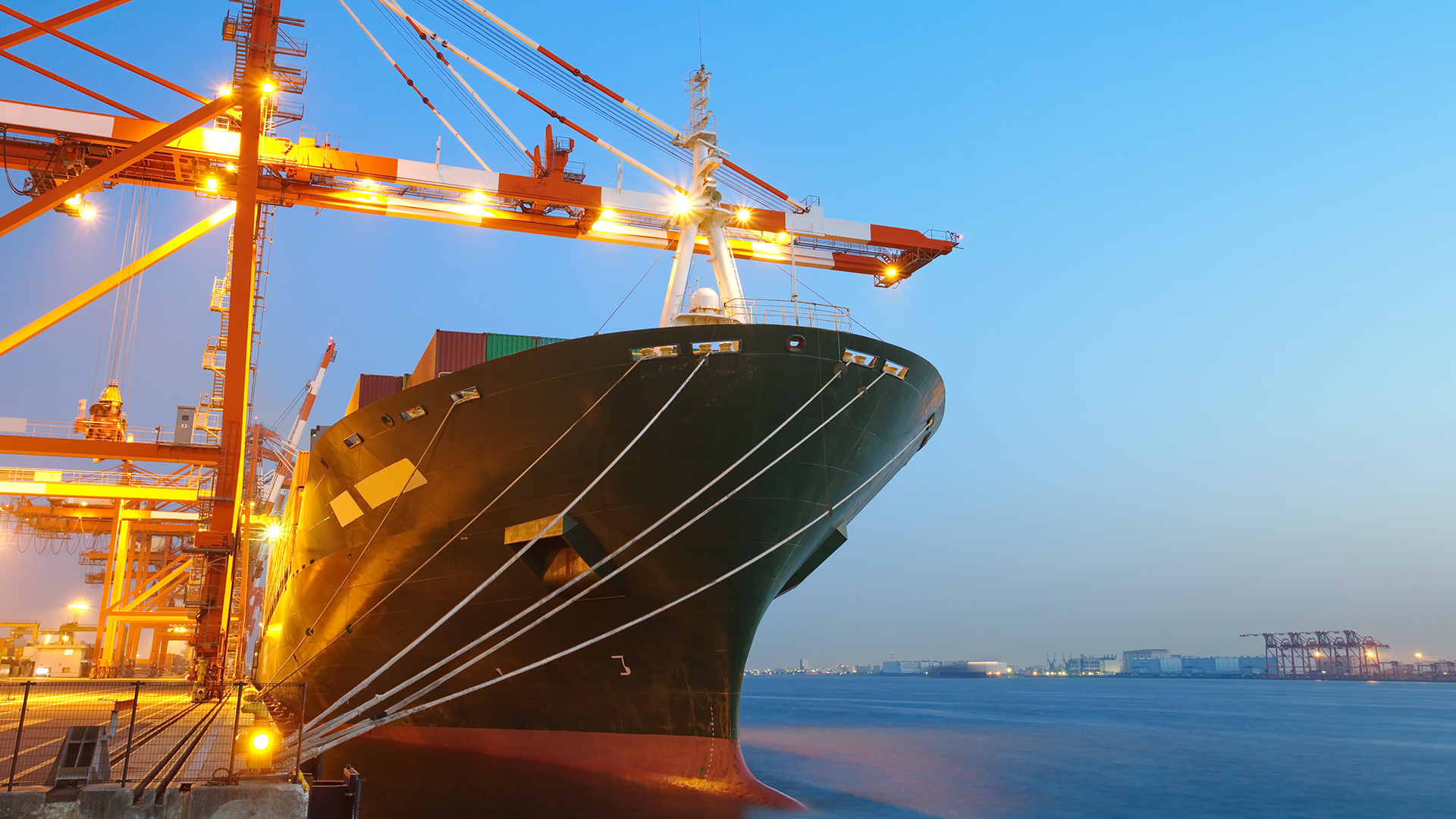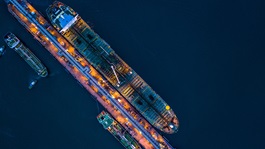
New regulation on the FuelEU Initiative adopted by the European Council following scrutiny
Global | Publication | 七月 2023
As we have reported previously (EU Green Deal and Maritime Fuel), the EU’s ‘Fit for 55’ package presented on 14 July 2021 contained a basket of measures, including the FuelEU maritime initiative (the FuelEU Initiative), aimed at achieving the EU’s target to reduce the EU’s net greenhouse gas emissions by at least 55% by 2030 (compared to 1990 levels) and put the EU on a path to be climate neutral by 2050. The FuelEU Initiative fits closely with the EU Emissions Trading System Directive (EU ETS Directive) which incorporates shipping into the EU emissions trading scheme and ship operators will need to devise a strategy to deal with the requirements under both initiatives simultaneously.
After scrutiny from the relevant EU legislative chambers, a new regulation on the FuelEU Initiative (the Maritime Fuel Regulation) was adopted by the European Council on 25 July 2023. The new rules will enter into force twenty days from the date of adoption by the European Council and will apply from 1 January 2025 (except for Articles 8 and 9 which will apply from 31 August 2024).
Background
The FuelEU Initiative has been specifically designed to accelerate the decarbonisation of the maritime industry by introducing EU regulation which, whilst ensuring fair competition within the maritime markets (i) increases the demand and use of renewable and low-carbon maritime fuels (over 99% of fuels used currently in maritime transport are fossil fuels) and (ii) decreases greenhouse gas (GHG) emissions across the maritime sector.
Scope of the Maritime Fuel Regulation
The Maritime Fuel Regulation applies initially to all ships, regardless of their flag state, over 5000 gross tonnes (GT) visiting a port within the EU, although there is an expectation that the directive will eventually be extended to ships under the 5000 GT limit. Rather than dictating the type of low-carbon/ zero-carbon fuels to be used by the shipping industry, the Maritime Fuel Directive sets stringent limitations on the acceptable yearly GHG intensity of the energy (in effect, fossil fuel derived energy) used onboard a ship. It is not just energy used on intra EU voyages that will be caught, but also 50% of emissions from voyages which start outside of the EU and end at an EU port, or which start at an EU port but end at a port outside of the EU. The Maritime Fuel Regulation will not apply to all voyages and all types of ship: for example, fishing vessels, naval auxiliary vessels and war ships will not be subject to the legislation and also, until 2029, there are a number of exemptions for voyages to, from or within any of the nine outer most regions of the EU. It will also be possible to pool the compliance balance of one ship with a number of other ships and, where this is notified in advance, the requirements of the Maritime Fuel Regulation will apply to the whole pool and it will be the average of the pool that must comply with the requirements under the Maritime Fuel Regulation. There will also be advantages for shipping companies that use Renewable Fuels of Non-Biological Origin (RFNBOs).
Key provisions
Reduction of GHG emissions
The Maritime Fuel Regulation requires that greenhouse gas (GHG) emissions from ships subject to the Maritime Fuel Regulation are reduced, as against the baseline set out therein, by:
- 2% from 1 January 2025;
- 6% from 1 January 2030;
- 14.5% from 1 January 2035;
- 31% from 1 January 2040;
- 62% from 1 January 2045; and
- 80% from 1 January 2050.
Onshore Power Supply
The preamble to the Maritime Fuel Regulation explains that the requirement to use an OPS is limited to containerships and passenger ships because these are the types of ships which have been found to produce the highest amount of emissions per ship whilst moored at a quayside. In terms of energy usage for ships at anchorage, whilst this is not covered in the legislation itself, the preamble to the Maritime Fuel Regulation explains that this is because the technology to use OPS at anchor is not sufficiently advanced and so the EU Commission should continue to monitor this and keep the viability of the use of OPS by ships at anchor under review. The requirement for ports to provide OPS at berth and for ships to be adapted to take such power supply must not be underestimated – a considerable investment will have to be made.
Monitoring, reporting and verification
To ensure compliance with the Maritime Fuel Regulation, a robust and transparent monitoring, reporting and verification system has been devised to apply to all ships. The entity responsible for compliance with the Maritime Fuel Regulation is the ‘shipping company’ for any given ship, which is defined as the shipowner, or other person or organisation (such as the manager or bareboat charterer) who has assumed the responsibility for the operation of the ship and agreed to undertake the duties imposed under the International Management Code for the Safe Operation of Ships and for Pollution Prevention, effectively the ‘Document of Compliance’ (DOC) holder (the Shipping Company).
The Shipping Company is the same entity that (i) is currently required to provide emissions data under the Regulation (EU) 2015/757 on the monitoring, reporting and verification of carbon dioxide emissions from maritime transport, and amending Directive 2009/16/EC (the MRV Regulation) and (ii) will be required to surrender EU emissions allowances under the EU ETS Directive.
From 31 August 2024, each Shipping Company will be responsible for submitting a monitoring plan, for its ships, specifying the chosen methodology for reporting, amongst other things, the amount and type of energy used on board each ship (at steam and berth), the well-to-wake emission factors for each type of fuel used, the connection to and use of OPS, together with the amount of each type of substitute source of energy consumed. The monitoring plan is to be submitted to the verifier who will be an independent third party verifier accredited by an applicable national accreditation body (appointed under the MRV Regulation). From 1 January 2025, Shipping Companies will be obliged to record such information and by March 2026 (and each subsequent year), they will need to submit the data for the previous year to the verifier together with any intention to include a ship in a pool. Based on the information reported by a Shipping Company, the verifier shall calculate the yearly average of GHG intensity of energy used on board each ship (and the ship’s balance against the applicable limit (including any surplus or deficit)), along with adherence with the OPS obligation. If the ship (or the ships in a pool) meets the applicable requirements, it will be issued a FuelEU document of compliance, which will be required to enter any EU port.
The Maritime Fuel Regulation permits the voluntary pooling of the performance of different ships within a fleet (although the Shipping Company need not be the same for all the ships in the pool) such that the over-performance of one ship may be set off against the under-performance of other ships within the fleet, provided the total pooled performance is positive. Under such pooling arrangement, it is the pool as a whole that is obliged to meet the GHG limits set. In addition, Shipping Companies may roll-over a ship’s compliance surplus into a subsequent reporting period for that ship or borrow an advance compliance surplus. Such measures are designed to reward over compliance and provide Shipping Companies with flexibility whilst issues such as the availability and quality of renewable and/or low-carbon fuels subsist.
Penalties for non-compliance
From 1 May 2026 and in each subsequent year, Shipping Companies whose ships do not comply with the limits on yearly GHG intensity of the energy used on board and/or fail to adhere to the OPS requirements under the Maritime Fuel Regulation will face remedial penalties. These penalties are designed to remove any economic advantage of non-compliance with the legislation. There are financial penalties for non-compliance which are calculated in accordance with a methodology set out in the Maritime Fuel Regulation. If a ship does not comply with its obligations under the legislation, then a FuelEU document of compliance will not be issued. If a ship fails to hold a FuelEU document of compliance for two or more consecutive reporting periods, then a Member State may take further action when such non-compliant ship visits one of its ports: should the non-compliant ship be flying the flag of that Member State, the ship may be issued with a detention order and should the ship be flying a different flag, the ship may be subject to an expulsion order.
Commentary
The Maritime Fuel Regulation will impact all ship owners, operators and charterers which trade their ships within or to and from the EU. As the deadline of August 2024 for Shipping Companies to submit their initial monitoring plan is fast approaching, owners and operators will need consider how compliance with the Maritime Fuel Regulation will be achieved. The guidance to the Maritime Fuel Regulation recognises that the additional monitoring and reporting obligations envisaged by the Maritime Fuel Regulation will place a further administrative burden on the industry and so envisages that the EU Commission will, in due course, examine the consistency between the reporting obligations under the MRV Regulation, in order to avoid any duplication between the two regimes. In any event, certain of the reporting obligations and verification requirements under the Maritime Fuel Regulation have already been aligned with those under the MRV Regulation, which the industry is already familiar with, so as to limit the further administrative burden on Shipping Companies.
Responsibility for compliance with the Maritime Fuel Regulation, including the payment of any penalties lies with the Shipping Company. In most cases the Shipping Company is likely to be the manager of a ship and so owners and charterers will need to consider how best to manage these obligations in the context of their chartering arrangements. In addition, charterers and owners will need to agree how responsibility for compliance with the directive will be managed: the preamble to the legislation envisages that parties may want to agree to contractually allocate responsibility.
The Maritime Fuel Regulation sends a clear message about the importance of decarbonisation to the whole sector and will require the close cooperation of all participants in the sector for its ambitions to be fully realised. The shipping industry’s transition to decarbonisation and climate neutrality will require significant investment in the development of new zero-carbon or low-carbon marine fuels and propulsion systems, which then need to be widely available and affordable for the Maritime Fuel Regulation to operate effectively. Presently, low-carbon/zero-carbon fuels and the requisite propulsion systems necessary to use them do not exist on a scale sufficient to support the increased demand that the Maritime Fuel Regulation will generate. Further, supply chains and global trade may be significantly impacted if ships are unable to source compliant fuel; in turn resulting in potential market distortion and unfair competition, which of course goes against the FuelEU initiative’s goal of ensuring a ‘level playing field’ across the global shipping market.
Other Legalseas resources
Subscribe and stay up to date with the latest legal news, information and events . . .






